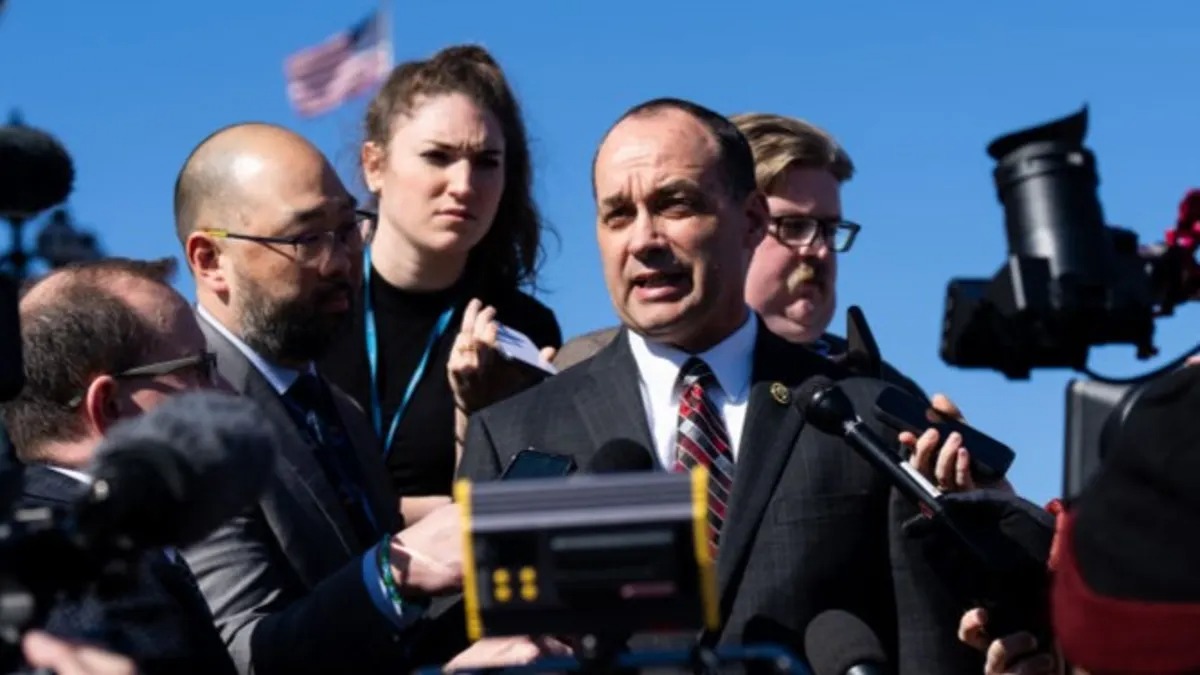The House of Representatives is poised to make significant progress in resolving a protracted dispute over government funding with a vote on a nearly $460 billion spending package scheduled for Wednesday.
This bipartisan legislation, comprising six bills, addresses departments and agencies whose funding expires on Friday, including Agriculture, the Food and Drug Administration (FDA), the Justice and Commerce Departments, Energy and Water Development, the Department of the Interior, and Transportation and Housing.
Funding for Congress’ six remaining bills, including the Department of Homeland Security and the Pentagon, is set to expire on March 22.
The House’s approval of this spending package would mark a significant step toward ending a contentious period marked by disagreements over federal spending priorities.

House GOP Members (Credits: NY1)
The discord within the House GOP, exacerbated by the party’s slim majority, has led to internal divisions. Hardline GOP members, particularly from the House Freedom Caucus, have pushed for leveraging a government shutdown to demand significant spending cuts and conservative policy measures.
However, Democrats controlling the Senate and the White House have resisted their efforts. These disagreements have also resulted in friction within the House GOP, with hardliners staging protest votes on procedural matters that have disrupted House proceedings.
Last October, a small group of right-wing lawmakers joined all House Democrats to remove then-Speaker Kevin McCarthy from power, marking the first time in history a speaker was ousted, following his efforts to avoid a shutdown through bipartisan cooperation.
To ensure the bill’s passage, House GOP leaders are bypassing traditional mechanisms by rushing the bill to the floor under suspension of the rules, which requires a two-thirds majority for passage. This decision acknowledges the need for Democratic support due to the GOP’s narrow House majority.
This move to bypass traditional procedures has left many members of the House GOP frustrated, and disagreements have arisen over who is to blame for the current situation.
Some view the House Freedom Caucus as undermining congressional work, while others see the suspension of rules as disregarding voter concerns and promoting bipartisan agreements that may not align with conservative values.
Regardless of these internal conflicts, the bill’s passage in the House will set the stage for further consideration in the Senate and eventual approval by President Biden to avoid a partial government shutdown by the end of the week.























